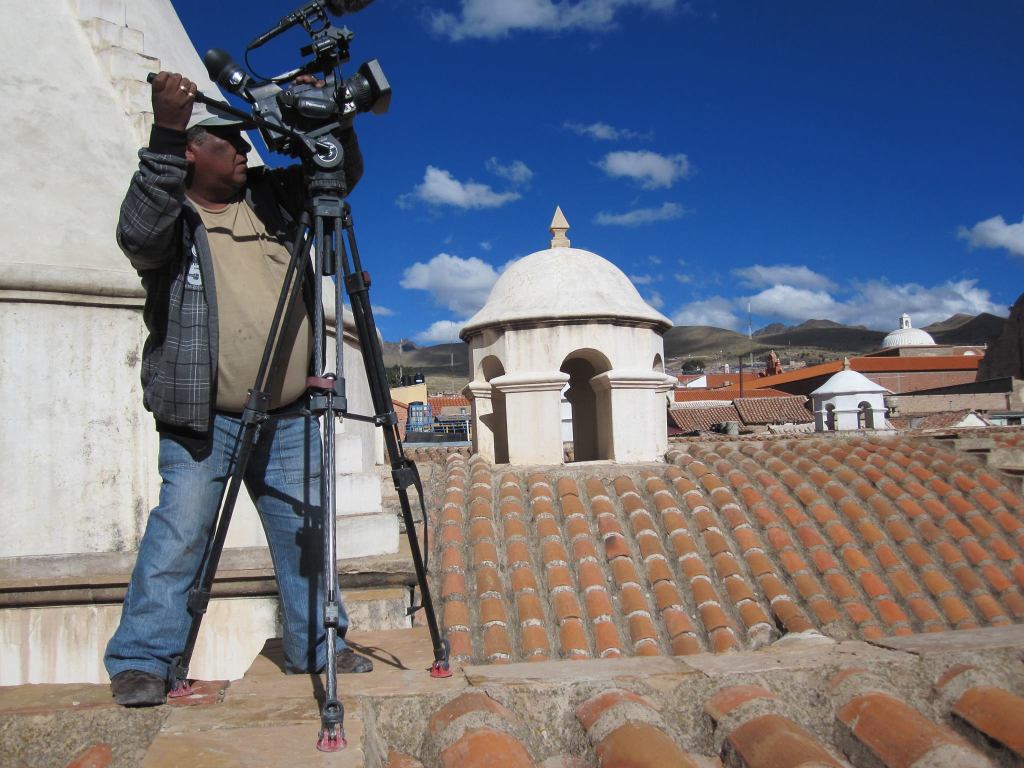Winner of the jury award for best Bolivian Feature at the 29th International Human Rights festival.
 In 2014 director Chihiro Geuzebroek released her documentary ‘Radical Friends’. This documentary raises awareness for a more sustainable living and environmental and social justice.
In 2014 director Chihiro Geuzebroek released her documentary ‘Radical Friends’. This documentary raises awareness for a more sustainable living and environmental and social justice.
In order to raise this awareness, Chihiro wanted to tell a story of indigenous wisdom in a modern age, and traveled to Bolivia. During her three month journey, she met Bolivia’s first indigenous president, several local communities, indigenous students and her own Bolivian family who she had never met before. Throughout her on-going journey, the question that drives her, is how to encourage people around her to help change the world for the better.
More political willingness. That is what we need, to create more sustainability and to establish more environmental and social welfare.
The word ‘radical’, comes from the Latin word ‘Radh’, which means ‘coming from the root’. According to Chihiro, issues should be addressed at the root: for instance, as big as climate change is, it is still caused by a bigger underlying problem.
For her documentary, Chihiro went into the mines of Potosi. According to her, the Cerro Rico Mountain there shows how (multinational) corporations solely care about getting the natural resources. Subsequently they leave an impoverished land behind containing industrial chemical garbage which is causing health problems for the local communities living there. The documentary, and more specifically at this point, therefore argues for the legal protection of nature.
The overall belief concerning sustainability is that it is permissible for cities to live from the resources of the countryside. That makes a modern city based living unsustainable to begin with.
As cities will always demand more than they produce themselves: they historically haven’t sustained themselves and so they always needed resources from rural communities. In countries where there is a division between one part having access to a lot of natural resources, and the other part being more advanced in technology, it is important that they will work along side each other. This is unfortunately not the case in many parts of the world.
What is the solution?
Chihiro: “The solution should be found in an economy that serves the landbase and water basins. The first steps include going local, creating circular economies that are restorative by nature, stop working for private interest and start working to serve social welfare and leave the remaining fossil fuels in the ground. Mostly it is a matter of changing the way industry produces and distributes stuff.”
Chihiro, my question to you: What is the real challenge in changing the world in the context of more sustainability and more environmental and social justice?
“Creating political willingness. So much is ready to be implemented. For instance to reduce emissions and to get fossil free, but fossil fuel politics is wrecking helpful initiatives from being funded, being passed by law, being implemented etc.”
Do you want to know more about Chihiro Geuzebroek and her work, check out the trailer/VOD full movie available on her website www.radicalfriends.com.
Any suggestions or good ideas concerning creating a more sustainable living? Let us know!


